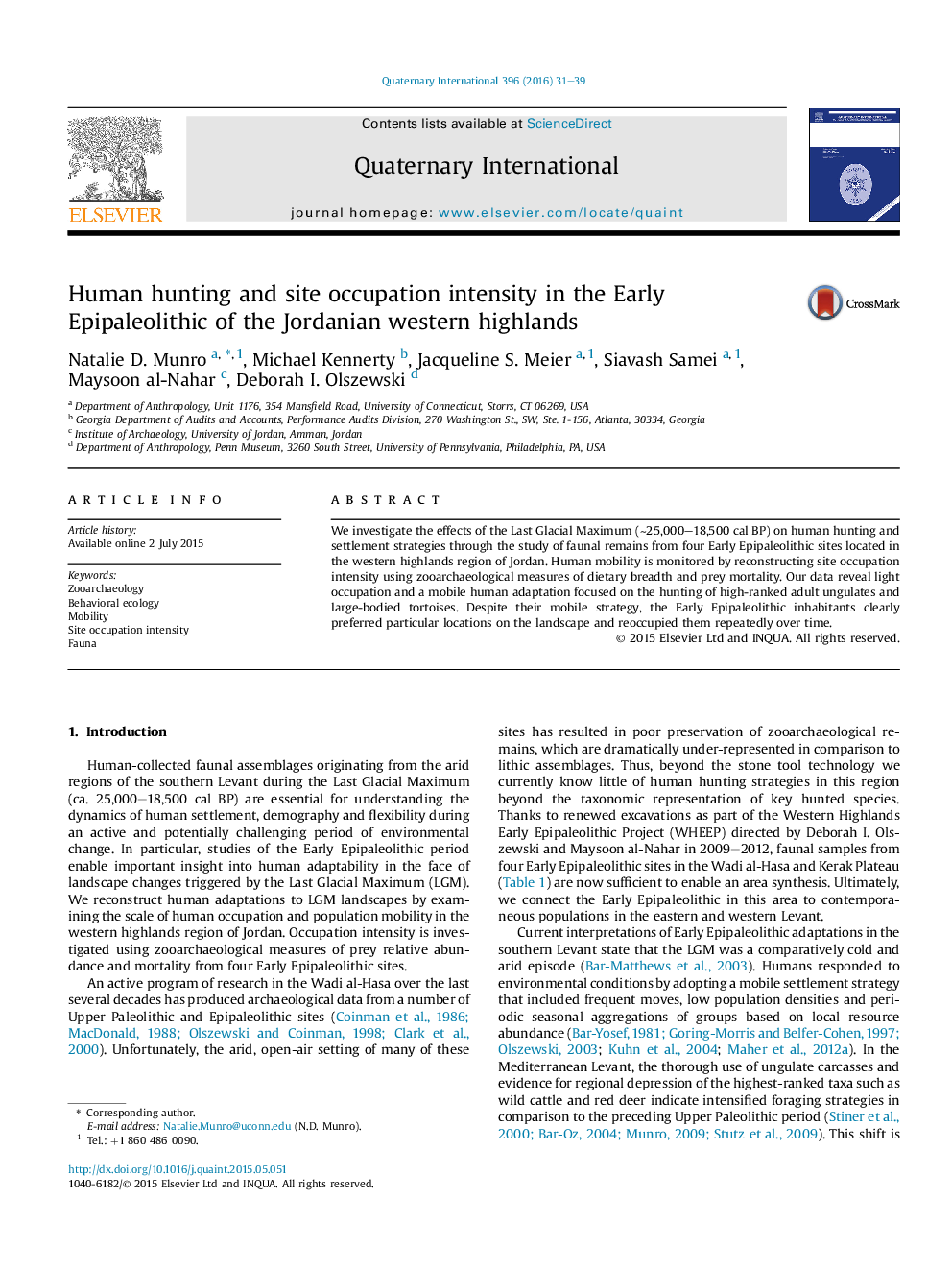| Article ID | Journal | Published Year | Pages | File Type |
|---|---|---|---|---|
| 1040238 | Quaternary International | 2016 | 9 Pages |
Abstract
We investigate the effects of the Last Glacial Maximum (∼25,000–18,500 cal BP) on human hunting and settlement strategies through the study of faunal remains from four Early Epipaleolithic sites located in the western highlands region of Jordan. Human mobility is monitored by reconstructing site occupation intensity using zooarchaeological measures of dietary breadth and prey mortality. Our data reveal light occupation and a mobile human adaptation focused on the hunting of high-ranked adult ungulates and large-bodied tortoises. Despite their mobile strategy, the Early Epipaleolithic inhabitants clearly preferred particular locations on the landscape and reoccupied them repeatedly over time.
Related Topics
Physical Sciences and Engineering
Earth and Planetary Sciences
Geology
Authors
Natalie D. Munro, Michael Kennerty, Jacqueline S. Meier, Siavash Samei, Maysoon al-Nahar, Deborah I. Olszewski,
